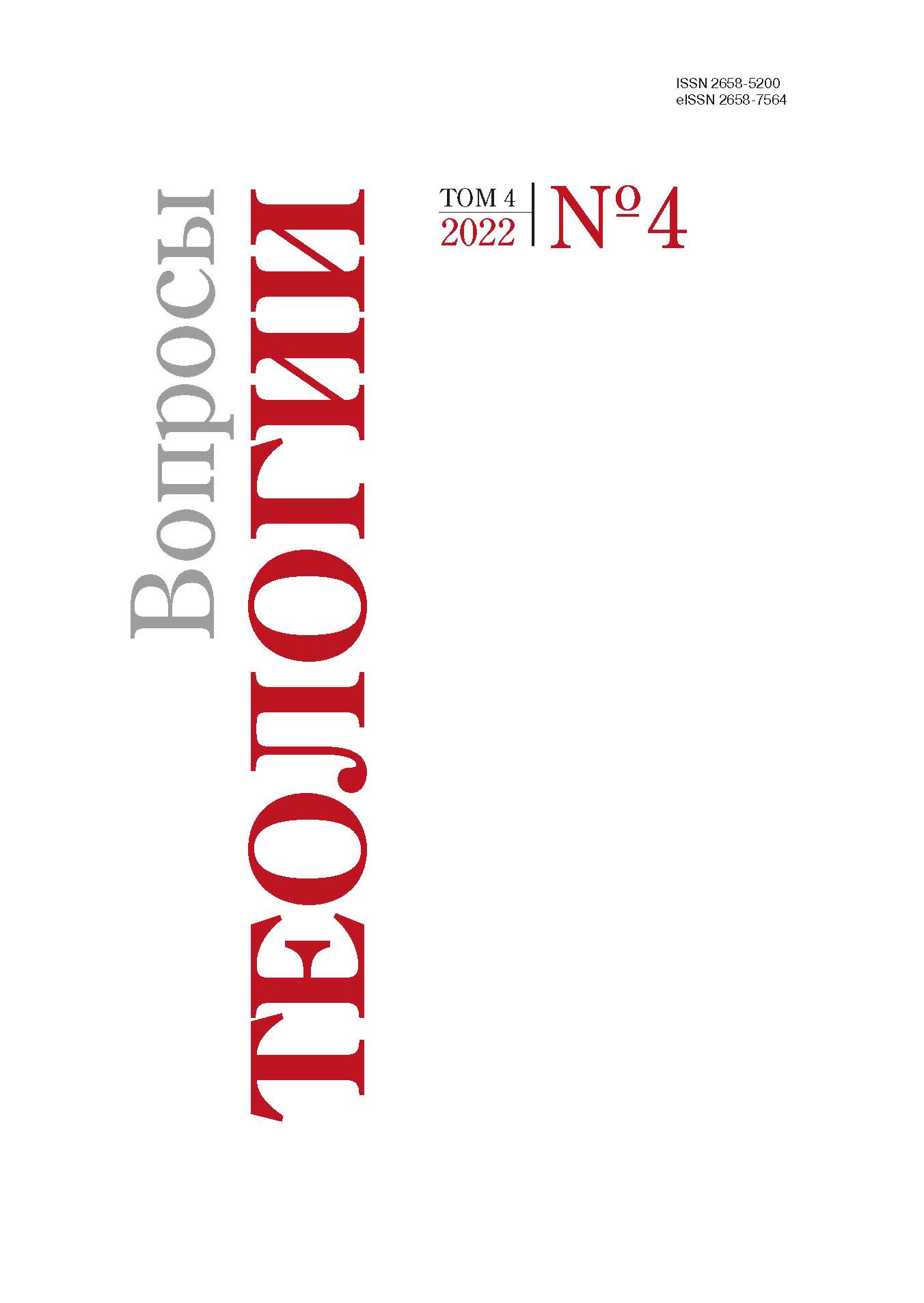Severus of Antioch’s idea of transforming the theological language from Triadology to Christology and its critique in Leontius of Byzantium’s treatise “Refutation of syllogisms of Severus”. Part one
DOI:
https://doi.org/10.21638/spbu28.2022.402Abstract
The present text is the first part of the study which examines the idea of Severus of Antioch on transforming the language of theology on the way from Triadology to Christology and the critique given to it in Leontius of Byzantium’s treatise “Refutation of syllogisms of Severus”. As per Severus, the Incarnation of God the Word requires modification also in the theological language of description and confession of this pivotal dogma for Christianity as compared with the language manifested in speculations of Cappadocian Fathers concerning the description by human wording and confession of the dogma of consubstantiality of the hypostases of the Trinity. The project of modification of the conceptual content of theological language constitutes a fundamental aspect of the entire concept system of Severus’ theology, with, however, only two texts extant where this project is represented as a specific idea of reform of the theological language initiated by a mystical act of transformation of the nature of things in the event of the Incarnation. The texts meant are the preserved fragment of the third Severus’ letter to hegumen John and Chapter III of Leontius of Byzantium’s treatise “Refutation of syllogisms of Severus”, where this idea of Severus is formulated by a Severian opponent of Leontius and the latter, in the course of the dialog, gives an extensive critical response to it. In the first part of the study, the context of these texts is considered from the viewpoint of the theological and historical context of stage change in the Monophysite polemics.
Keywords:
Severus of Antioch, Leontius of Byzantium, Christology, Triadology, Monophysitism, Chalcedonism, natures and names
Downloads
References
References
Downloads
Published
Issue
Section
License
Articles of "Issues of Theology" are open access distributed under the terms of the License Agreement with Saint Petersburg State University, which permits to the authors unrestricted distribution and self-archiving free of charge.




